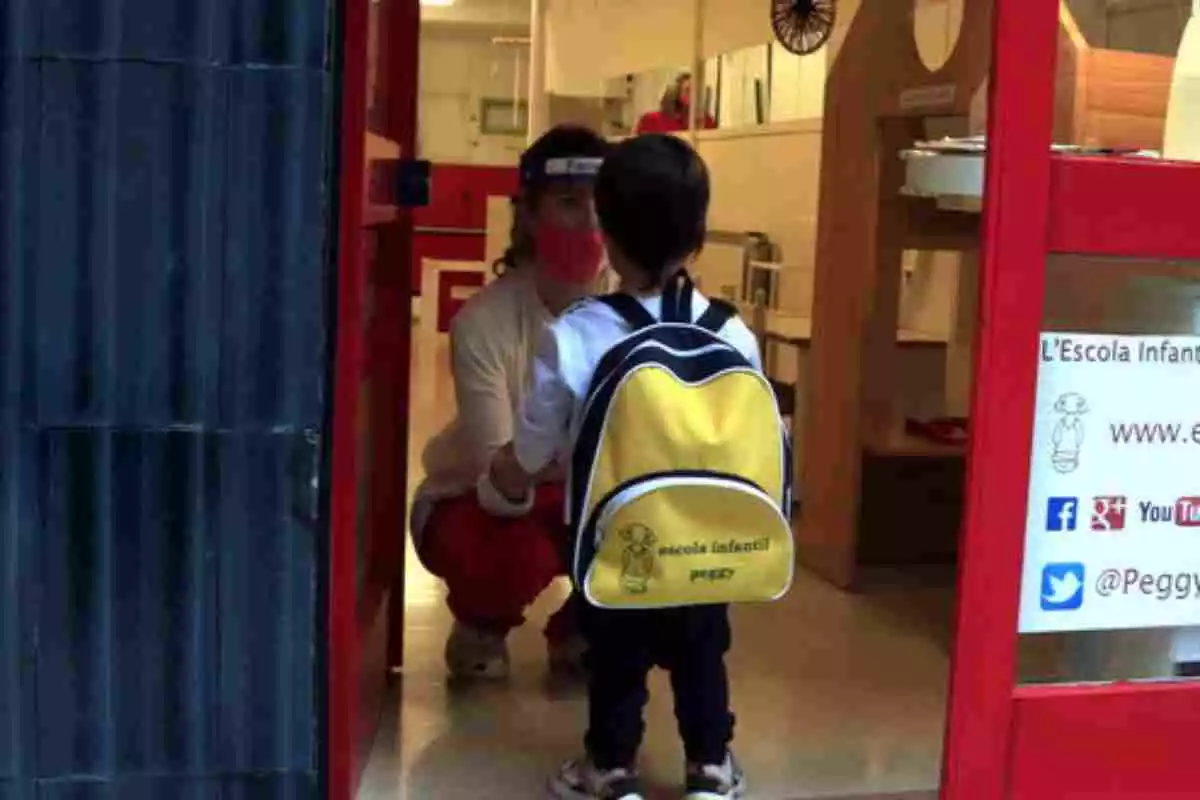There have been many theories about the effect of coronavirus on children during this year-long pandemic. The main one, undoubtedly, pointed out that children are immune to the virus that has swept the world. But after studies and research, scientists are clear: children do catch COVID. However, they do it less and in a different way than adults.
According to the experts' conclusions, the immune system of children may be better strengthened than that of adults when it comes to eliminating SARS-CoV-2 from their bodies. That is why they represent a small percentage of the total number of infected people. But yes, children can get sick from coronavirus.
The risk of a child needing hospital admission after catching coronavirus is "low" and the risk of developing severe disease is "even lower," according to a report in the British Medical Journal (BMJ). The risk, therefore, is low, but not non-existent, as is the risk of a child dying from coronavirus.
They aren't superspreaders either as had been warned. According to data from the Vall d'Hebron Hospital in Barcelona, only 8% of children transmitted COVID to family members. Experts point out that it is even more difficult for children to transmit the virus, as they have less thoracic and expectorant capacity.
How to detect coronavirus in children: their symptoms
Most children who become infected with the virus are asymptomatic or have mild symptoms. Moreover, they evolve favorably and, according to the Spanish Society of Pneumology and Thoracic Surgery (SEPAR), only 1% require hospitalization. But what symptoms will a child infected with COVID-19 show? Let's see.
The virus usually causes febrile, catarrhal or gastrointestinal symptoms, headache, vomiting or lymphopenia in children. In some cases, pneumonia may occur, although in most cases without being serious. It is from the age of 10 and 11 when the symptoms may begin to resemble those suffered by an infected adult. It should be noted, of course, that the children at greatest risk are, as in adults, those with previous illnesses or problems, which are aggravated by the virus. We are talking about children, for example, with obesity, diabetes or asthma.
In conclusion, and fortunately, the behavior of coronavirus in children is much more benevolent than in adults. Even so, it is not impossible for them to become infected or show symptoms. For this reason, we must protect them. In this regard, the WHO recommends that pregnant women should be vaccinated to indirectly protect their babies. And scientists are already working on vaccines for children. Pfizer announced last Thursday that it has already begun testing, and it is not the only one: AstraZeneca, Moderna, Janssen, Sinovac, Sputnik and Soberana are also working on it. Not to mention the vaccine developed by the CSIC virologist Luis Enjuanes, a single-dose vaccine administered intranasally, which is scheduled to be inoculated in 2022.
What is PIMS? a rare syndrome in children with coronavirus
It should be recalled that after the pandemic began, in some countries, cases of a rare syndrome, known as PIMS (Pediatric Inflammatory Multisistemic Syndrome), SIMP or MISC-C, began to be detected in children. In fact, it is estimated that only one in 5,000 children with COVID develop it worldwide, according to the Royal College of Paediatrics and Child Health in the United Kingdom. Moreover, it has been found in children of a certain age. According to studies, it occurs when the body overreacts to the virus.
Although there is still some mystery surrounding this syndrome, fortunately, it is, apart from being very rare, treatable, although it is very important to detect it in time, since it causes serious complications, such as inflammation of tissues and organs like the heart, lungs, kidneys, brain, skin or eyes. There is no reason not to be able to fight the syndrome if detected early. Unfortunately, though, two Chilean minors have recently lost their lives due to this complication.
[This is a translation of the original article "Los niños sí se contagian de Covid: los síntomas que lo delatan" published in espanadiario.net]

